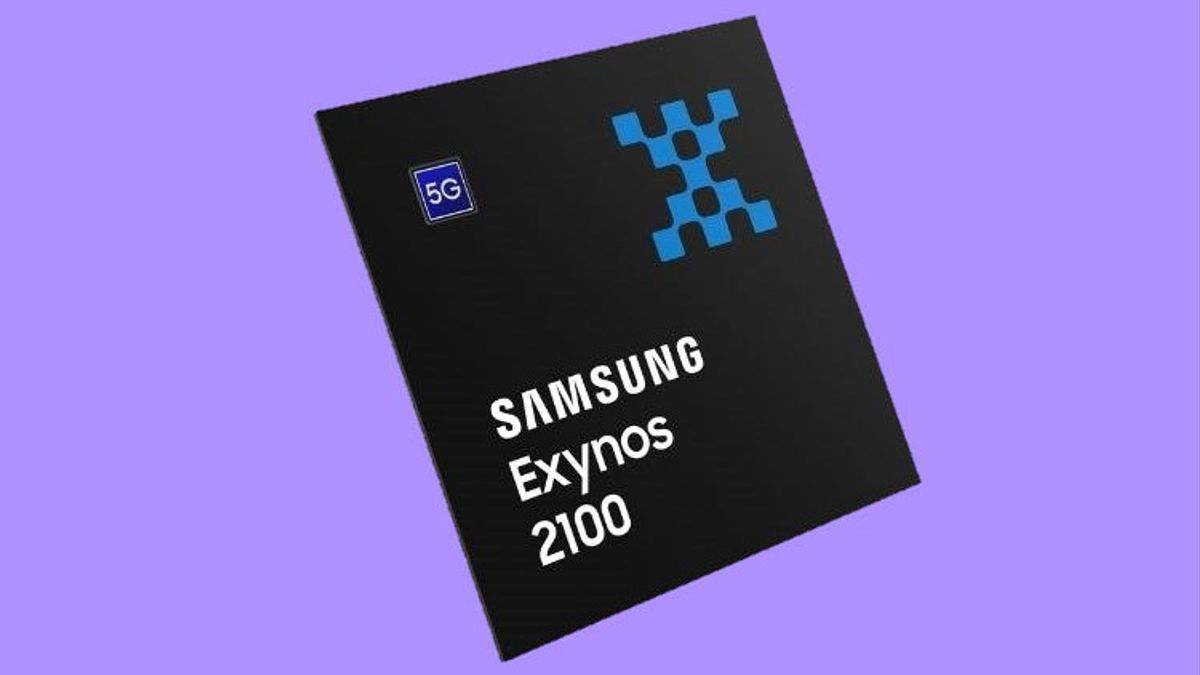JAKARTA - Samsung recently has launched its newest flagship smartphone in the Galaxy S series, which includes the Galaxy S21, Galaxy S21 Plus and Galaxy S21 Ultra.
All three devices are powered by the Exynos 2100 and Qualcomm Snapdragon 888 chipsets for certain regions.
While the Exynos 2100 is a big improvement over the Exynos 990, it still lags behind when compared to the Apple's A14 Bionic chipset in the iPhone 12 lineup.
[/ see_also]
- https://voi.id/teknologi/26993/samsung-galaxy-s21-s21-plus-dan-s21-ultra-resmi-mel launched
- https://voi.id/teknologi/26559/exynos-2100-diklaim-30-persen-lebih-i-ngebut-i-dibanding-snapdragon-888
- https://voi.id/teknologi/26933/perb comparison-di-atas-kertas-exynos-2100-dan-snapdragon-888
[/ see_also]
Now, the South Korean "giant" is reportedly working on a new chipset with the aim of beating the performance of Apple's A14 Bionic. Furthermore, it was also said that this new smartphone chipset could be launched in the first half of this year.
It's noteworthy that the System on Chip (SoC) in the Samsung Exynos 2100 is comparable to the flagship Qualcomm Snapdragon 888 chipset in terms of CPU testing.
According to Samsung Electronics' President of Systems LSI Business, Inyup Kang, the CPU on the Exynos 2100 brings a 30 percent increase in multi-core performance and a 19 percent increase in single-core performance over the previous generation.
It's just that, the performance lags behind in terms of GPU performance. To that end, the company is also reportedly working with AMD to improve graphics performance on the upcoming Exynos chip.

In a recent leak, the benchmark results obtained from Samsung's new processor are quite promising. On the Manhattan 3.1 tester, the processor can reach 181.8FPS, in normal Aztec it reaches 138.25FPS, as well as a very high 58FPS.
When compared to the A14 Bionic, the benchmark results are above it. This is because the A14 Bionic gets 146.4FPS on Manhattan 3.1, 79.8FPS in normal Aztec, and 30.5FPS on Aztec High.
With a recommended timeline for launch in the second quarter of this year, Samsung appears to be on track to change its chipset launch schedule.
As the fate of the Galaxy Note series is still unclear, it will be interesting to see what devices will be the first to be powered by this upcoming new chipset from Samsung.
The English, Chinese, Japanese, Arabic, and French versions are automatically generated by the AI. So there may still be inaccuracies in translating, please always see Indonesian as our main language. (system supported by DigitalSiber.id)










